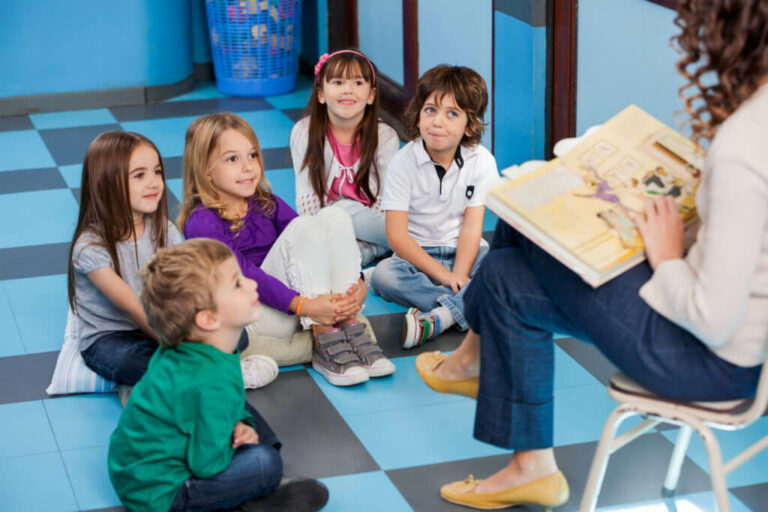In today’s competitive educational landscape, parents want to ensure their children have the best foundation for academic achievement. At Heritage Learning Center, we understand that school readiness extends far beyond knowing letters and numbers—it’s about developing the essential social skills that enable children to thrive in classroom environments, build meaningful relationships, and approach learning with confidence. Research consistently shows that children’s social-emotional competencies at kindergarten entry are among the strongest predictors of later academic success, making quality daycare experiences crucial for long-term educational outcomes.
Our experienced educators have witnessed firsthand how structured social learning environments transform shy, hesitant children into confident communicators and collaborative learners. Through intentional curriculum design, carefully facilitated peer interactions, and nurturing guidance, we create opportunities for children to develop the interpersonal skills they’ll rely on throughout their educational journey. When parents choose Heritage Learning Center, they’re investing in their child’s complete development, ensuring they enter kindergarten not just academically prepared, but socially and emotionally ready to flourish.

Why Social Development in Early Childhood Matters for Academic Success
The preschool years represent a critical window for social development, with research demonstrating that children’s social-emotional competencies significantly impact their ability to focus attention on learning, form positive relationships with teachers and peers, and navigate classroom dynamics. Studies tracking children from preschool through elementary school reveal that social-emotional skills measured at age four predict academic achievement through fifth grade, highlighting the lasting impact of early social development.
Research has found that children enter school with distinct readiness patterns, and those with strong social-emotional foundations consistently demonstrated better academic and behavioral outcomes. Teachers overwhelmingly report that children’s ability to regulate emotions, cooperate with peers, and communicate effectively matters more for classroom success than advanced academic knowledge.
The Five Critical Social Skills for School Readiness
Emotional Regulation: Children who can manage emotions, cope with frustration, and recover from disappointments are better equipped to handle academic challenges and classroom expectations.
Communication and Language Skills: Beyond vocabulary, children need to express needs appropriately, listen to instructions, and engage in meaningful conversations with adults and peers.
Cooperation and Collaboration: Working together on projects, sharing materials, and contributing to group activities are essential for classroom participation and peer relationships.
Problem-Solving and Conflict Resolution: Children who can navigate disagreements, seek help when needed, and find creative solutions demonstrate readiness for independent learning.
Self-Control and Attention: The ability to follow directions, wait for turns, and focus on tasks despite distractions directly impacts academic performance and classroom behavior.
How Quality Daycare Builds Essential Social Competencies
Structured Peer Interactions
Quality daycare environments provide numerous opportunities for children to practice social skills in supportive, supervised settings. Through carefully planned group activities, children learn to negotiate shared spaces, take turns with preferred materials, and collaborate on creative projects. These experiences teach valuable lessons about compromise, empathy, and teamwork that translate directly to classroom success.
Unlike isolated home environments, quality daycare programs intentionally create situations where children must work together, fostering prosocial behaviors and conflict resolution skills. Research indicates that preschool experiences provide crucial opportunities for developing competencies that serve as the foundation for future success.
Professional Guidance and Modeling
Trained early childhood educators serve as skilled facilitators, helping children navigate social challenges while building confidence and independence. Our teachers model appropriate communication, demonstrate problem-solving strategies, and provide gentle guidance when conflicts arise. This professional support ensures children develop healthy social patterns rather than problematic behaviors that might interfere with school success.
Quality daycare programs maintain appropriate child-to-teacher ratios, ensuring each child receives individualized attention for their unique social development needs. Research consistently demonstrates that better quality child care environments with qualified teachers are related to better cognitive and social development outcomes.
The Heritage Learning Center Approach
Integrated Social Learning
Our curriculum seamlessly integrates social skill development into daily activities. During circle time, children practice listening skills and respectful communication. Art projects become opportunities for sharing and collaboration. Dramatic play areas allow children to explore different roles while developing empathy and imagination.
We recognize that social skills develop simultaneously with other readiness domains, so our approach ensures social learning happens naturally throughout the day rather than in separate, disconnected activities.
Positive Behavior Support
Rather than focusing solely on correcting negative behaviors, our approach emphasizes teaching and reinforcing positive social interactions. Children learn appropriate behavior through clear expectations, consistent routines, and positive reinforcement when they demonstrate good social choices.
Family Partnership
We believe social development happens most effectively when families and caregivers work together. Our teachers regularly communicate with parents about their child’s social progress, sharing specific examples of growth and providing suggestions for reinforcing social skills at home.
Measuring Social Readiness
Parents can look for specific indicators that their child is developing school-ready social skills: ability to separate from parents without excessive distress, engage in cooperative play with peers, follow multi-step directions, and communicate needs appropriately.
Children who enter school with well-developed social skills are more likely to enjoy learning, form positive relationships with teachers, and develop resilience when facing academic challenges. The social competencies developed in quality daycare programs create a foundation for lifelong success, supporting not only academic achievement but also emotional well-being throughout childhood and into adulthood.
Ready to Give Your Child the Social Foundation for School Success?
At Heritage Learning Center, we’re committed to providing the nurturing, structured environment where your child can develop the social skills essential for school success and lifelong learning.
Is your child ready to build the social skills they need for kindergarten success? Contact Heritage Learning Center today to schedule a tour and discover how our research-based approach to social development gives children the confidence, communication skills, and collaborative abilities they need to thrive in school and beyond. Call us today or visit our website to learn more about our comprehensive early childhood program designed to prepare your child for a lifetime of learning success.



